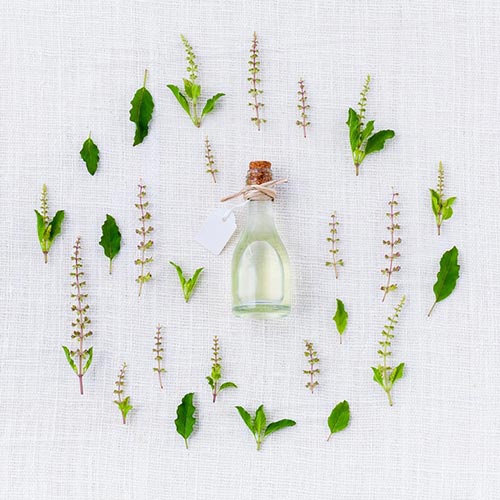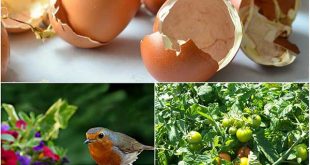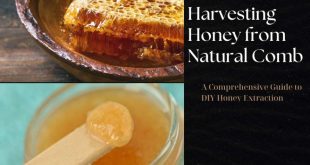8 Herbs That Help with Depression & Anxiety
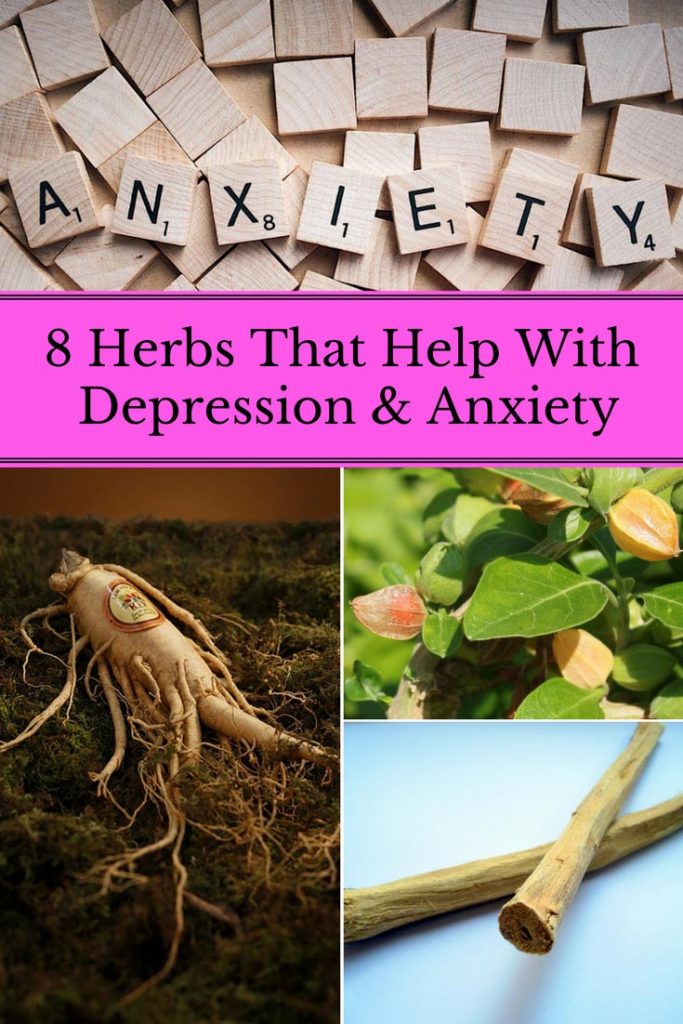
Anxiety and depression are ubiquitous conditions that impair your ability to think clearly and function effectively in everyday life. Almost 1/3 of the country’s mental health expenditure goes towards treating anxiety disorders, which cost over $42 billion each year. With over 40 million people affected, anxiety is an epidemic in the United States and depression isn’t far behind. As of 2015, an estimated 16 million adults had at least one major depressive episode over the course of the previous year. That’s 6.7% of US citizens. Not only are anxiety and depression independently prevalent, they are also correlated.
Those who suffer from depression are more likely to have an anxiety disorder, and vice versa. Nearly 50% of those with depression also suffer from anxiety.
Millions of Americans who struggle with anxiety or depression feel compelled to navigate the potentially treacherous pharmaceutical industry’s path towards mental health, taking antidepressant drugs that often have negative side effects. Millions of prescriptions for anti-anxiety and anti-depressant medications are written each year.
Benzodiazepines, including Xanax and Ativan, are among the most frequently prescribed medications and come with a laundry list of potential side effects such as dizziness, drowsiness, headaches, mental cloudiness, irritability, and sleep disruption. These drugs are intended for short-term use and, taken long-term, can increase your risk for Alzheimer’s disease and dementia but they are, unfortunately, highly addictive. Like most addictive substances, the body acclimates to them within a few months and they are no longer effective unless the dose is increased. Quitting these drugs is incredibly difficult.
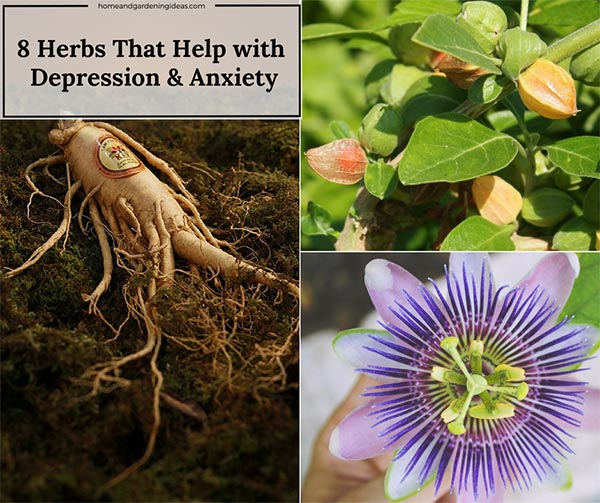
While western medicine is quick to prescribe drugs to help people cope with potentially debilitating symptoms, there are alternatives. In truth, there are many herbal remedies that have been scientifically validated and can ameliorate symptoms naturally, without the dangerous side effects associated with overuse of pharmaceuticals.
8 of the most effective herbs for treating anxiety and depression
St. John’s Wort
St. John’s Wort (Hypericum perforatum) has consistently been used by native cultures in temperate and subtropical regions of the world to treat depression. In 2008, the Cochrane Systematic Review conducted a study that found St. John’s Wort equally effective as antidepressant drugs at treating depression. Unlike standard antidepressants, this herb is low risk for harmful side effects. As a whole extract, St. John’s Wort promotes both relaxation and measured energy boosts that don’t spike. It’s highly effective when used to regulate sleep and improve overall mental health.
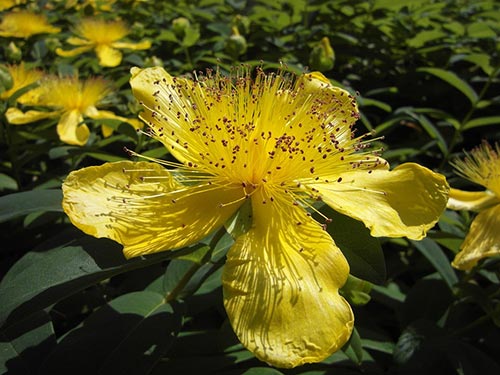
Ginkgo Biloba
Ginkgo biloba acts as a natural antidepressant by improving circulation. Because it increases blood flow to the brain, it holistically elevates your state of mind and promotes focus and concentration without increasing anxiety.
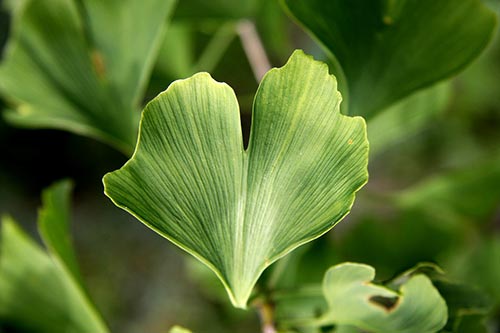
Ashwagandha
Ashwaganda (withania somnifera) is an important herb in Ayurvedic medicine. Its name translates to “smell of horse,” which is apropos because it does smell like horse and traditional healing considers it a potent herb for strength and stamina. It reduced anxiety and depression by increasing levels of serotonin while simultaneously decreasing levels of the stress hormone cortisol.
Ashwagandha contains powerful adaptogenic compounds and is also known to inhibit the spread of cancer cells as well as degenerative brain conditions such as Parkinson’s and Alzheimer’s. According to the journal Phytomedicine, ashwagandha prevents stress-induced damage from free radicals, does not cause side effects, and at least as effective as antidepressant drugs at relieving the symptoms of depression and anxiety.

Licorice root
Licorice root naturally contains a hormone that can be used as an alternative to cortisone. This hormone supports the body’s ability to handle stress, helps to stabilize blood sugar levels and adrenal glands, and provides a natural energy boost. Some herbalists claim that licorice root also stimulates cerebrospinal and cranial fluid, which calms the mind. Licorice root can be brewed as a tea or taken as a tonic.
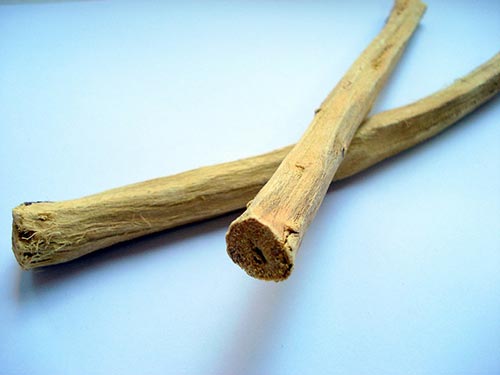
Passion flower
A natural, non-drowsy sedative, passion flower (Passiflora incarnata) relieves mild to moderate stress and anxiety. Steep it for approximately 10 minutes and drink it as a tea to promote emotional balance, equilibrium and reign in extreme ups and down throughout the day. Passion flower was traditionally used in North and South America and later in Europe to generally instill calm and, more specifically, to treat insomnia, seizures, hysteria, and anxiety.
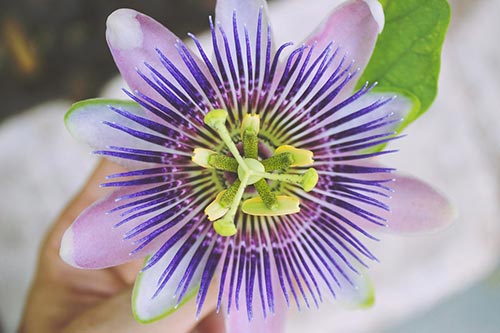
Kava Kava
Kava, or kava kava (piper methysticum) is one of the most efficacious natural anxiety remedies. South Pacific cultures have safely consumed kava for over 3,000 years. It has been tested against prescription drugs such as Opipramol and Buspirone and found equally effective for treating anxiety. Kava is a natural mood enhancer, inducing a state of mild sedation and euphoria, in part, by increasing GABA, or γ-Aminobutyric acid. Kava can literally make you feel happy. It is highly effective in treating anxiety and depression. It is often applied in cases of post-menopausal depression and as a mild, non-addictive tranquilizer to treat sleep disorders.
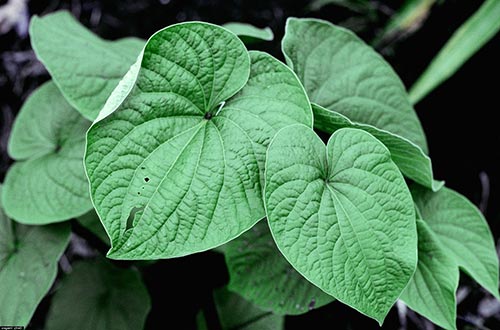
Ginseng
Simply put, ginseng is good for your brain. It improves memory, concentration, and mental clarity. Used as a supplement, it can even boost your endurance. It’s a mild stimulant with many health benefits, including anti-anxiety attributes and physical revitalization. Used as a tonic, tea or supplement it can help you enhance overall health, reduce stress and maintain emotional equilibrium. It has been studied extensively and used to treat specific conditions such as heart disease, cancer, erectile dysfunction, hepatitis C, and hypertension.

Holy Basil
Holy basil (ocimum sanctum), also known as tulsi, is an Indian herb used in Ayurvedic medicine. Tulsi means “the incomparable one” and is believed to promote longevity and good health. Holy basil decreases stress hormones in the body, particularly cortisol, and is highly effective at reducing anxiety and depression. In addition to its longstanding reputation in traditional medicine, modern research has found that holy basil has antimicrobial and anti-inflammatory properties. It promotes a healthy heart, liver, and nervous system and inhibits harmful conditions such as cancer and diabetes. It is also used to treat brain-related disorders, such as insomnia, depression, headaches, and memory loss.
 Home and Gardening Ideas At home and Gardening ideas we believe inspiring readers about homesteading, self sufficiency
Home and Gardening Ideas At home and Gardening ideas we believe inspiring readers about homesteading, self sufficiency
